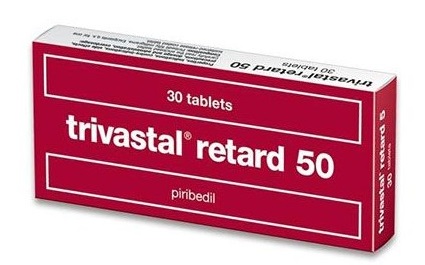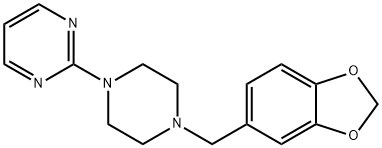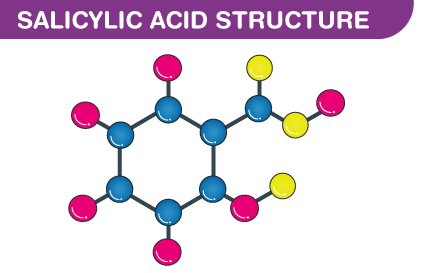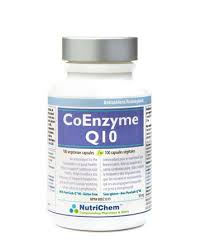Uses and Side Effects of Vasodilator Piribedil
Vasodilator Piribedil
Pirbedil, also known as tasuda, Pronoran, Trivastal Retard, is clinically used as peripheral vascular and cerebral vasodilator. It is a dopamine receptor agonist and can be used as monotherapy or in combination with L-DOPA therapy to treat Parkinson's disease and improve certain symptoms caused by intelligent defects in the elderly, such as attention and memory loss, dizziness, and intermittent claudication caused by lower extremity arterial embolism (second phase). It is similar to dopamine in terms of prevention of Retinal defect attack and improvement of visual acuity with side effects similar to L-DOPA. In addition, Pirbeidil also improves peripheral blood circulation, and has certain curative effect on obstructive or embolic fundus diseases.

Pirbedil can stimulate the D2 receptor and the midbrain cortex in the substantia nigra of the nigral striatum of the brain, and the D2 and D3 receptors in the midbrain marginal pathway to provide an effective dopamine effect. During the treatment, Pirbedil stimulates the cerebral cortical electrical activity in a "dopaminergic" form which has a clinical effect on various functions caused by dopamine. For peripheral circulation, Pirbedil can increase blood flow in the femoral blood vessels, which may be due to inhibition of sympathetic tone. It is fast absorbed if taken by mouth and the Tmax is 1h. It also has a low plasma protein binding rate. Therefore, it is less likely that Pirbedil will have interactions with other drugs. T1/2 is 1.7 to 6.9 h. Pirbedil has two metabolites, one of which is a monohydroxy derivative, and the other is a bishydroxy derivative. 68% of the absorbed pyrbedolol is excreted from the kidney in the form of a metabolite. About 50% of the metabolites are removed in 24 hours, and 100% are removed in 48 hours. 25% of the metabolites are excreted from bile. Pirbeidil releases the active ingredients gradually, and the therapeutic effect lasts for more than 24 hours.
Side effects & Precautions
Minor gastrointestinal upset (nausea, vomiting, flatulence, etc.) in predisposed individuals, or when taken between meals: adjust dosage individually, and/or add CTZ’s agonist(domperidone) to reduce the incidence of side effects; Rare: blood pressure abnormalities (postural hypotension) or drowsiness.
If the therapeutic dose for patients with Parkinson's disease needs to be increased, dose then should be gradually increased. Generally, the daily dose should not exceed 250 mg. Piribedil is a sustained-release tablet. Do not crush when taking it. It should be swallowed completely.
Piribedil is contraindicated in patients with circulatory failure and acute myocardial infarction.
Piribedil is not a substitute for specific antihypertensive therapy in patients with hypertension.
Information for pregnant and lactating women is still lacking and the risk has been not known yet.
References
Dikshith, T. S. S., ed. 1991. Toxicology of pesticides in animals. Boca Raton, FL: CRC Press.
6a. Kidd, H., and James, D. R., eds. 1991. The agrochemicals handbook, 3rd ed. Cambridge, U.K.: Royal Society of Chemistry Information Services.
6b. Dikshith, T. S. S., and Diwan, P. V. 2003. Industrial guide to chemical and drug safety. Hoboken, NJ: John Wiley & Sons Inc.
6c. Hayes, W. J., and Laws, E. R., eds. 1991. Handbook of pesticide toxicology. New York: Academic Press.
See also
Lastest Price from 2-[4-(1,3-Benzodioxol-5-ylmethyl)piperazin-1-yl]pyrimidine manufacturers
![3605-01-4 2-[4-(1,3-Benzodioxol-5-ylmethyl)piperazin-1-yl]pyrimidine](/ProductImageEN/2023-12/Small/fdd054ce-af04-4ba0-81b7-906b3738348f.gif)
US $50.00-1.00/KG2024-03-25
- CAS:
- 3605-01-4
- Min. Order:
- 1KG
- Purity:
- 99%
- Supply Ability:
- g-kg-tons, free sample is available
![3605-01-4 2-[4-(1,3-Benzodioxol-5-ylmethyl)piperazin-1-yl]pyrimidine](/ProductImageEN/2021-07/Small/db458a66-eddb-4366-aef7-961473caddb8.jpg)
US $1.10/g2021-07-27
- CAS:
- 3605-01-4
- Min. Order:
- 1g
- Purity:
- 99.9%
- Supply Ability:
- 100 Tons min


